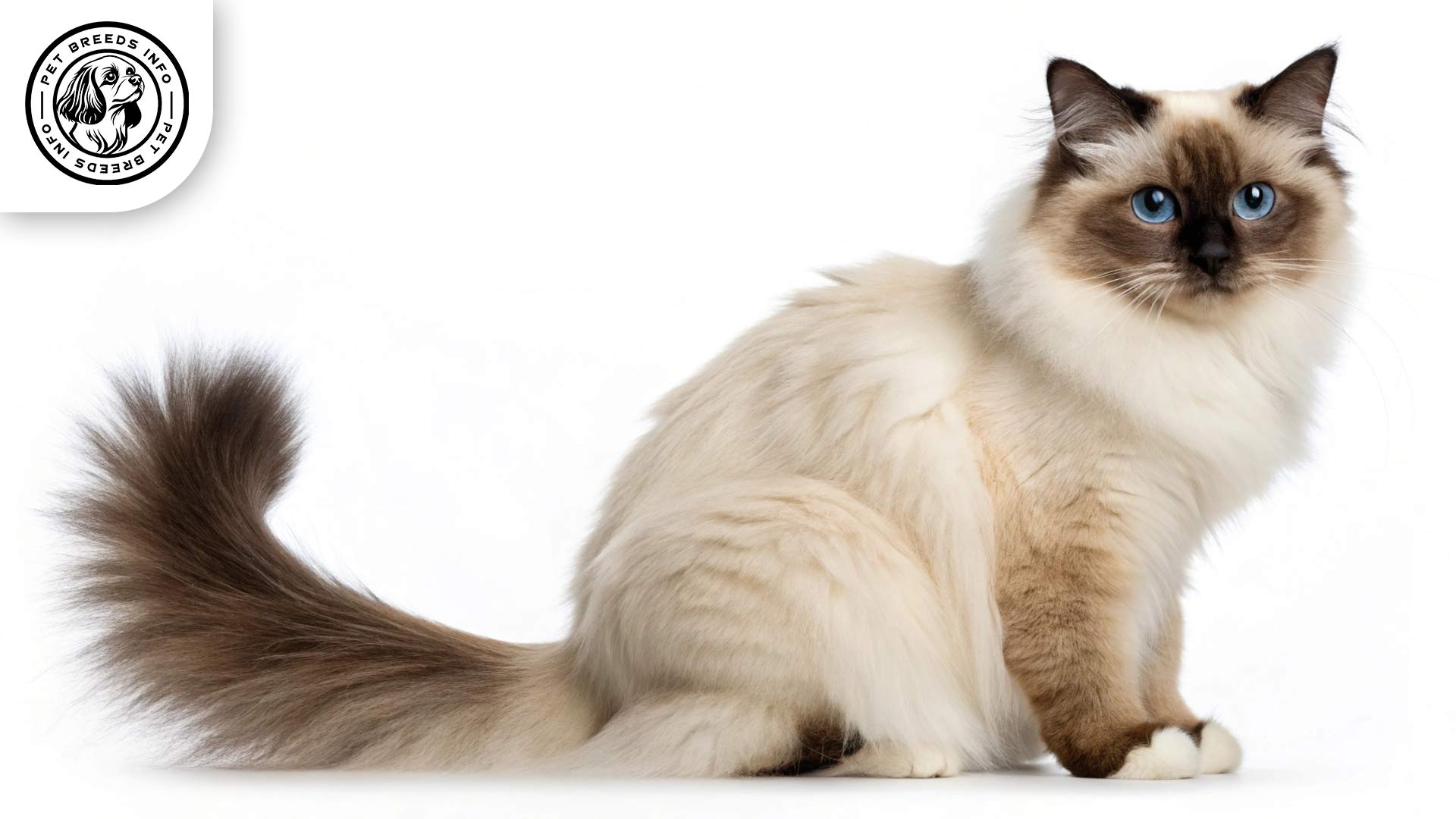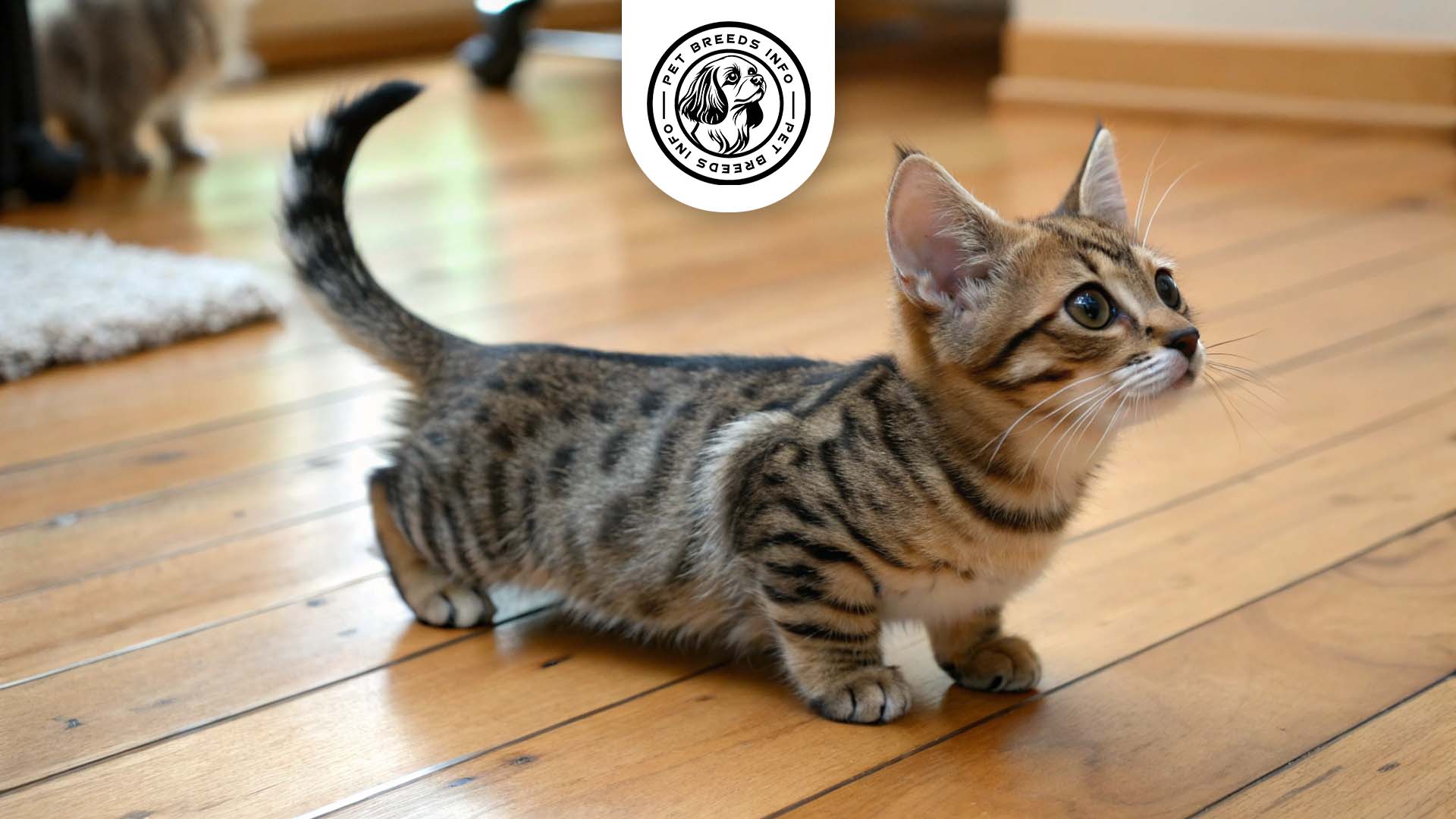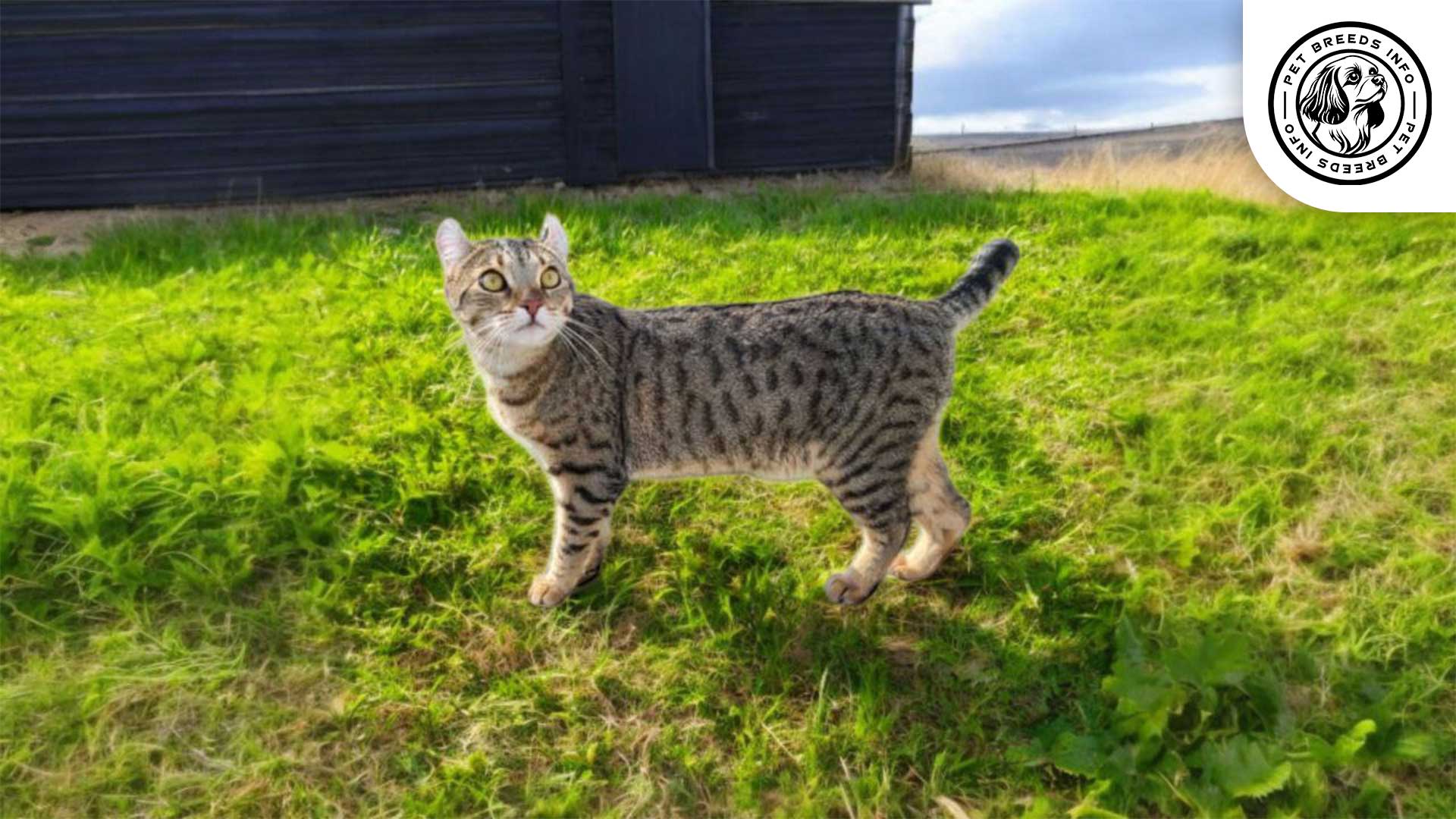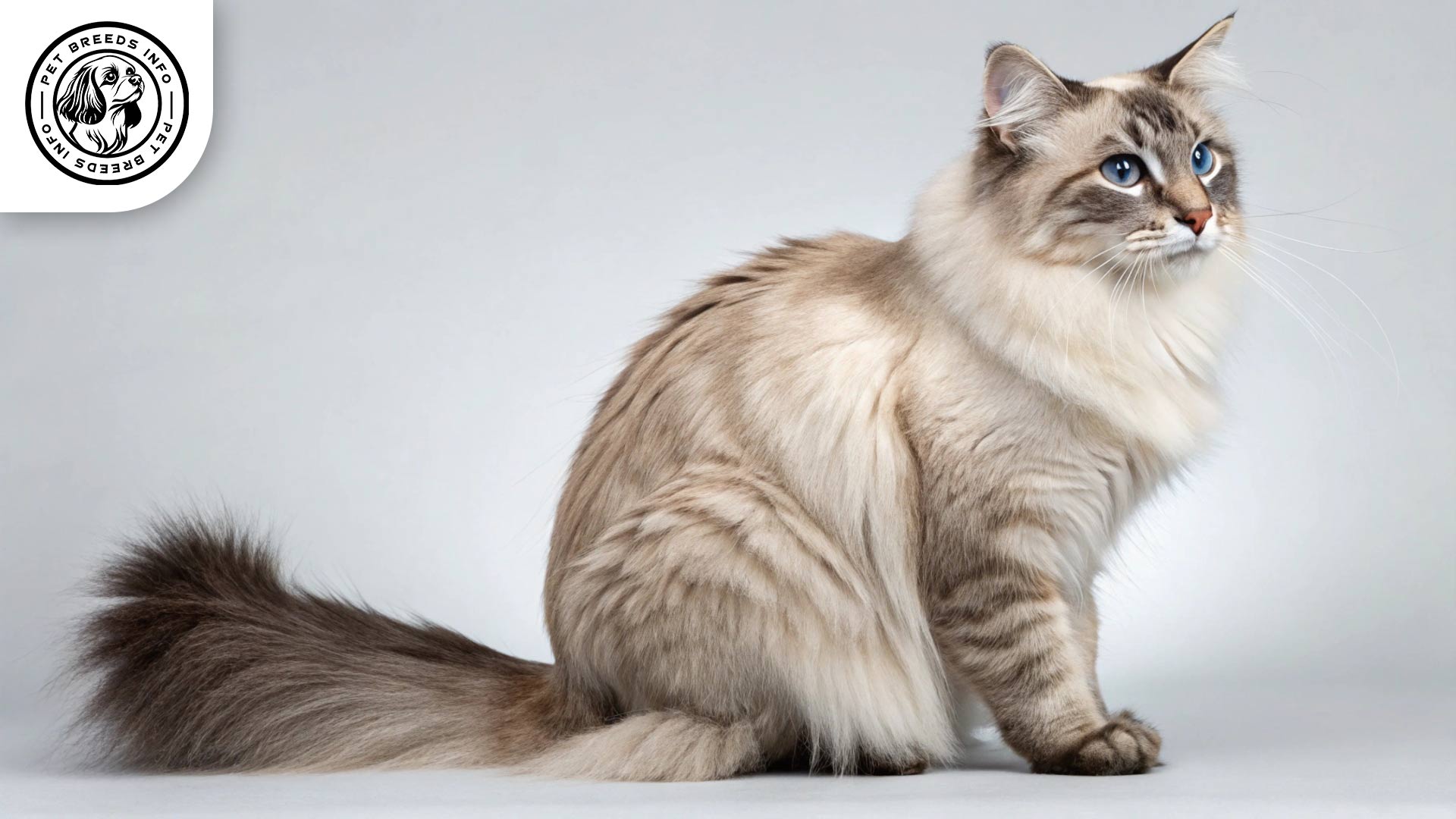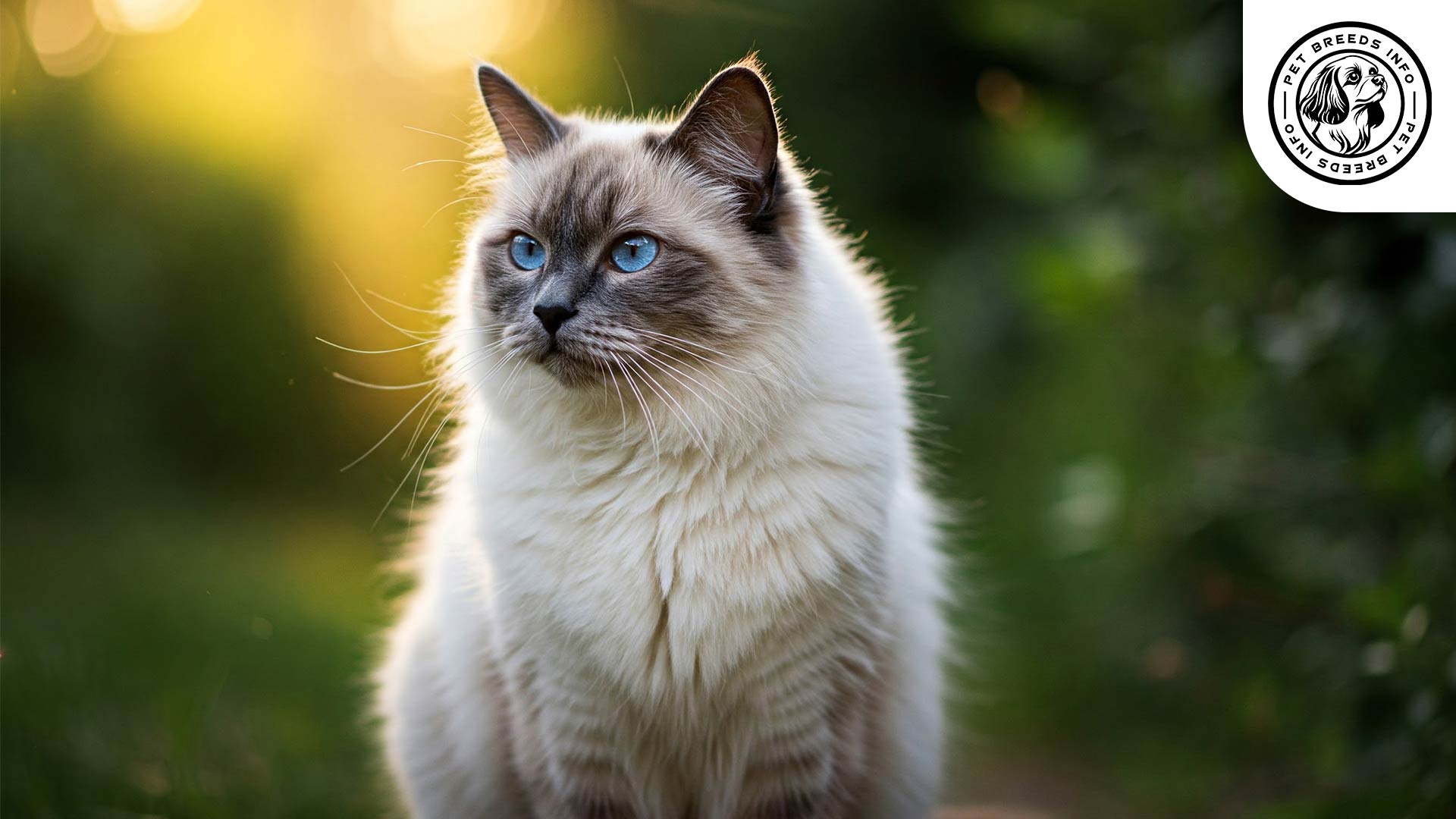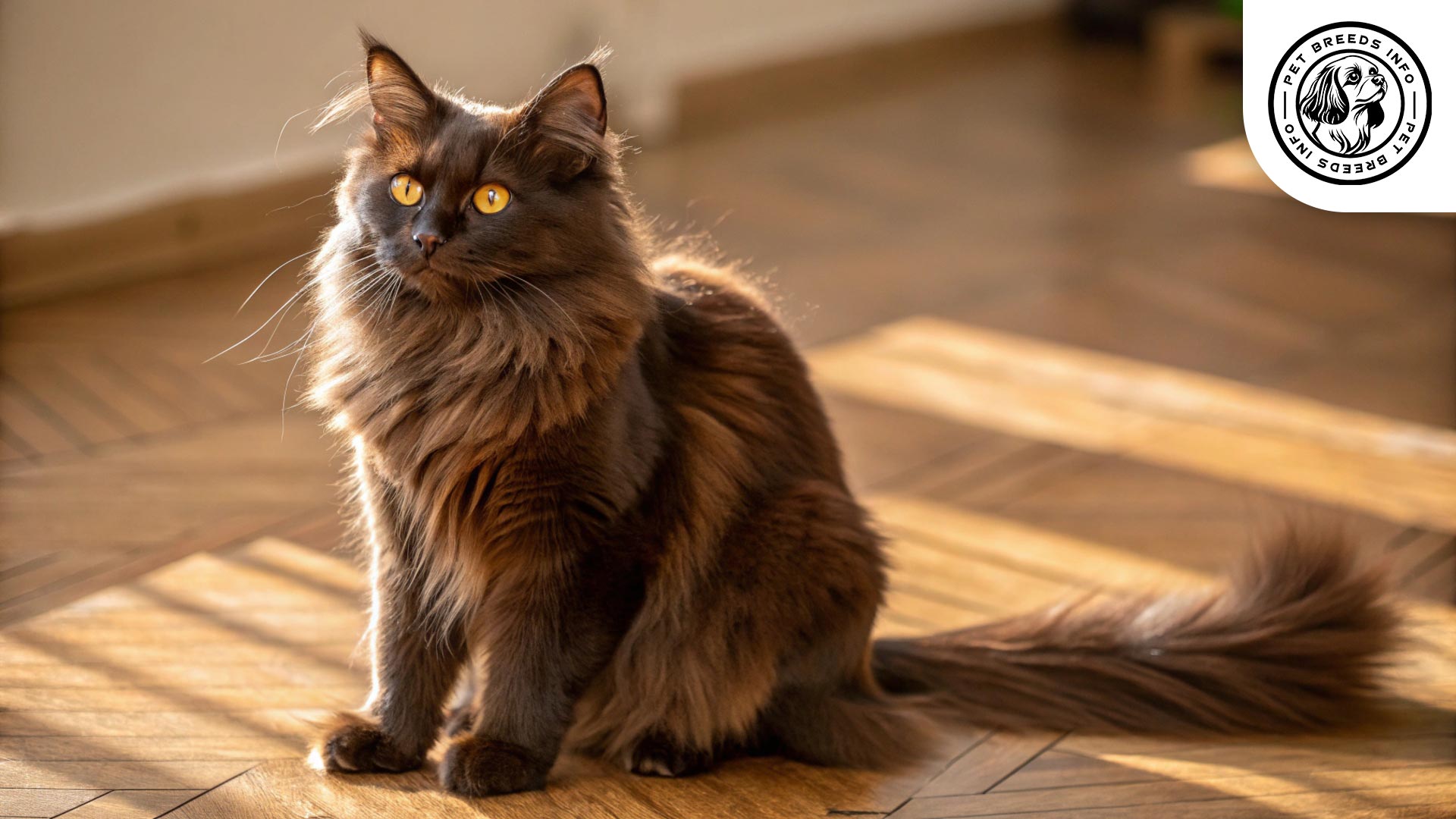Birman Cat Breed: Size, Health, Price & Personality
General Introduction of the Breed
The Birman cat, often called the “Sacred Cat of Burma” hails from Myanmar, where its origins are woven into captivating legends. Revered by temple priests for their serene beauty, Birmans were believed to hold spiritual significance. Introduced to Europe in the early 20th century, the breed gained formal recognition in France during the 1920s, sparking its global rise. With their stunning blue eyes, silky coats, and gentle temperament, Birmans have become cherished companions worldwide, blending a mystical heritage with an affectionate, elegant charm that enchants cat lovers everywhere.
The Birman cat is a loving, gentle, and sociable breed with stunning blue eyes and a calm nature, making it perfect for families and indoor living.Quick Overview
Affectionate - 95%
Independent - 60%
Intelligent - 85%
Sociable - 90%
Vocal - 40%
Shedding - 35%
Energetic - 55%
66%
100
| Weight | Males: 10-15 lbs (4.5-6.8 kg) Females: 6-10 lbs (2.7-4.5 kg) |
| Lifespan | 12-16 years |
| Color | Color points: blue, seal, chocolate, lilac, red, cream |
| Diet | High-quality dry and wet food, protein-rich, avoid onions, garlic, chocolate, caffeine. Adults: 2 meals/day, Kittens: more frequent meals. |
| Care | Moderate exercise, weekly brushing, indoor living, routine hygiene (nail trimming, ear cleaning, dental care). |
| Health | Prone to hypertrophic cardiomyopathy (HCM), kidney disease, obesity. Regular vet check-ups, vaccinations, parasite control. |
| Nature | Affectionate, gentle, sociable, intelligent, easy to train, good with children and other pets, moderate energy level. |
| Price | $600 – $1,500 (varies by breeder and pedigree) |
Table of Contents
Physical Characteristics
Birman cats are medium to large in size, with males typically weighing between 10 to 15 pounds and females between 6 to 10 pounds. They have a semi-long, silky coat that comes in various color points, including blue, seal, chocolate, lilac, red, and cream. Their eyes are a striking deep blue, and they have medium-sized ears and a long, fluffy tail. One of their most distinctive features is their white “gloves” on all four paws, a hallmark of the breed.
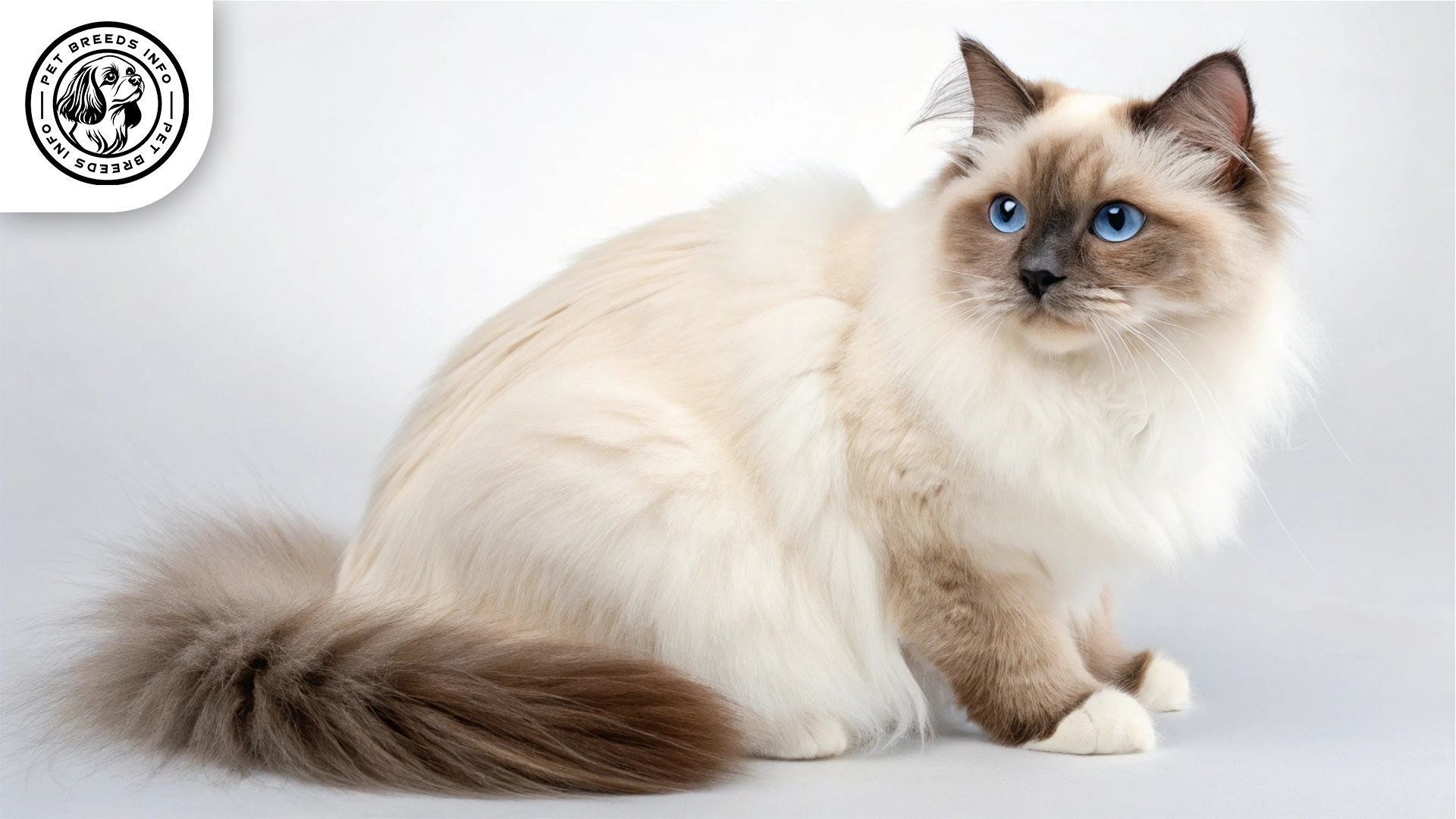
Personality and Temperament
Birmans are intelligent and easy to train, making them excellent companions. They have a moderate energy level and enjoy interactive play but are not overly hyperactive. Known for their affectionate nature, they form strong bonds with their owners. They get along well with children and other pets, displaying a gentle and friendly demeanor. While they adapt well to changes in their surroundings, they thrive best in stable environments.
Care and Maintenance Requirements
Birmans require moderate exercise and enjoy playing with toys or climbing cat trees. They adapt well to apartment living and do not require large spaces. Their coat is low-maintenance, with weekly brushing sufficient to prevent mats and tangles. They are generally comfortable in various climates but should be kept indoors to avoid extreme temperatures. Routine hygiene care, including nail trimming, ear cleaning, and dental maintenance, is essential for their overall health.
Read More: Bambino Cat
Diet and Nutrition
A balanced diet of high-quality dry and wet food is recommended for Birman cats. They benefit from protein-rich meals and should avoid excessive carbohydrates. Foods such as onions, garlic, chocolate, and caffeine should be strictly avoided. Adult Birmans typically need two meals per day, while kittens may require more frequent feeding.
Health and Common Medical Issues
Birmans are typically robust cats but can be susceptible to certain genetic health conditions, including hypertrophic cardiomyopathy (HCM), a heart disease, as well as kidney disease and obesity, which can impact their vitality if not managed properly. With an average lifespan of 12 to 16 years, these cats thrive with consistent care. Routine veterinary check-ups, timely vaccinations, and effective parasite control are essential to ensure their long-term health and well-being, helping to catch and address potential issues early for a happy, active life.
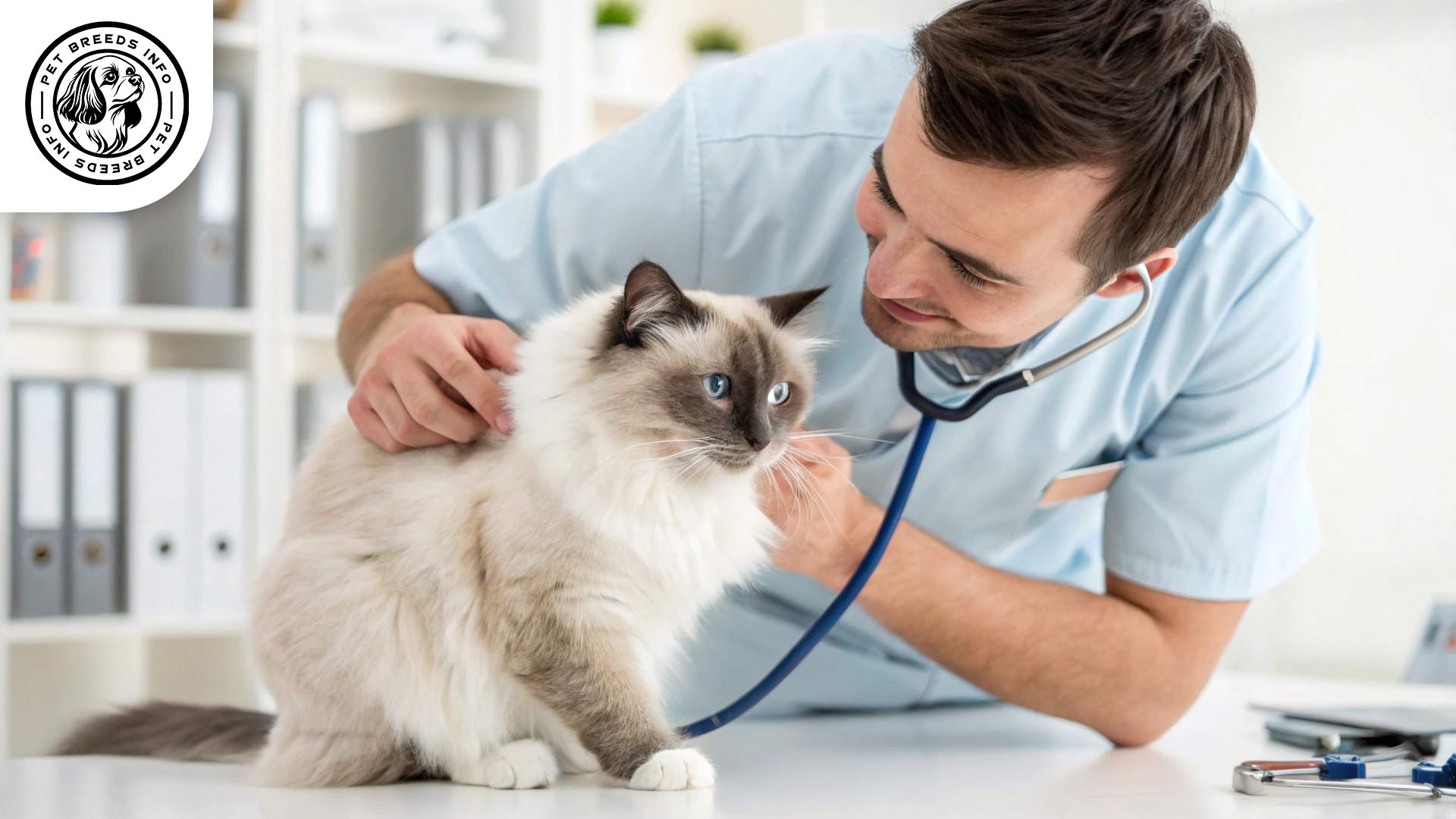
Training and Behavior Management
Birmans are highly trainable cats, thanks to their sharp intelligence and strong desire to please their owners. Positive reinforcement techniques, like offering treats or verbal praise, prove most effective in teaching them commands and encouraging good behavior, making training sessions both productive and enjoyable. Early socialization plays a crucial role in shaping Birmans into confident, well-adjusted cats, helping them adapt comfortably to new environments, people, and experiences with ease.
Read More: Australian Mist Cat
Interaction with Other Animals and Humans
Birman cats are deeply affectionate and thrive in family settings, forming gentle and patient bonds with children, making them ideal companions for households with kids. Their sociable and friendly nature allows them to coexist harmoniously with other pets, provided introductions are gradual and positive. While Birmans cherish human interaction and love spending time with their owners, they strike a balanced temperament, remaining content when left alone for short periods without becoming overly clingy.
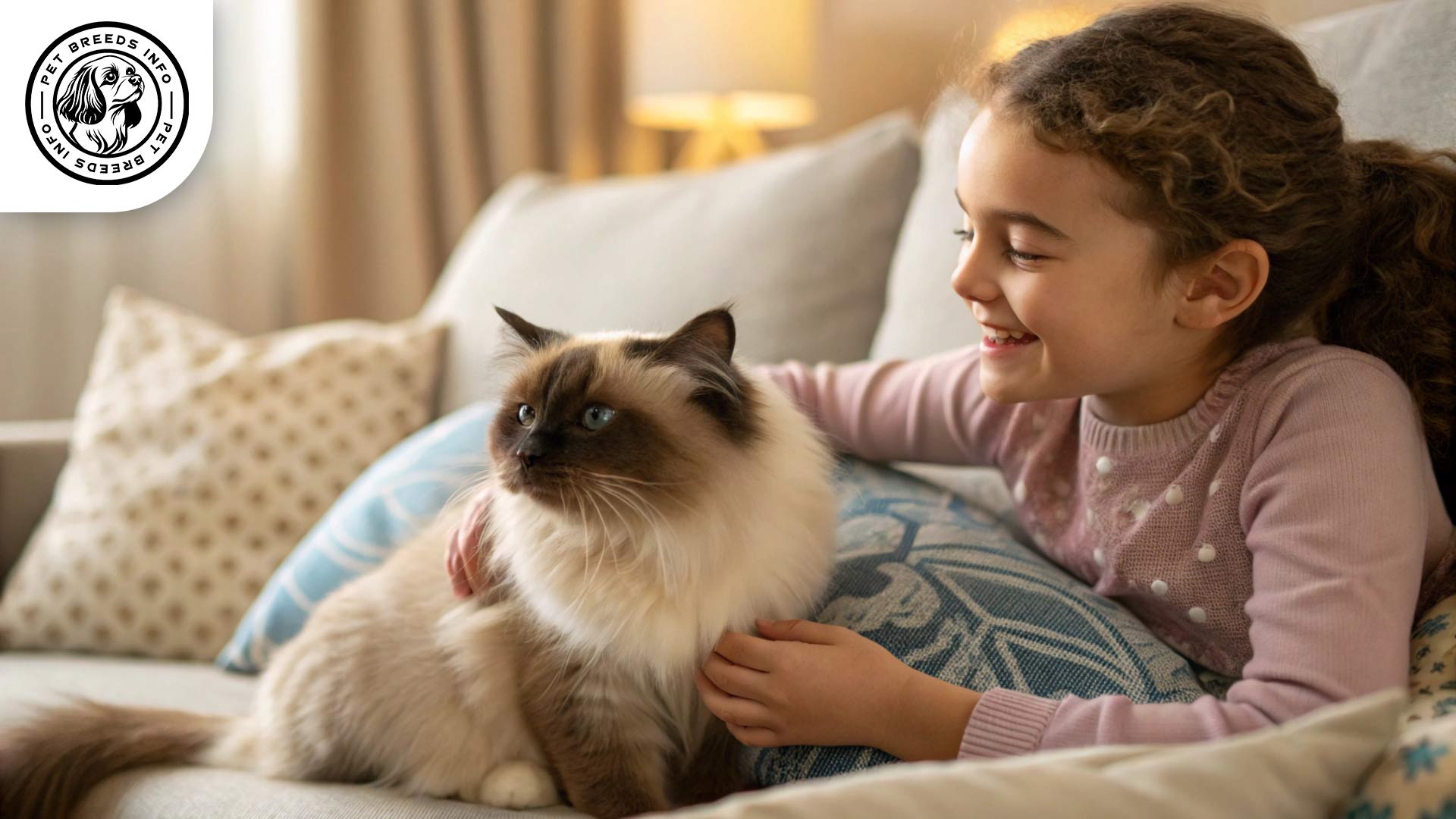
Price and Availability
The cost of a Birman cat varies depending on the breeder and pedigree, typically ranging from $600 to $1,500. When adopting or purchasing, it is essential to seek reputable breeders or animal shelters that provide health guarantees and proper care records.
Read More: Asian Semi-longhair Cat
Final Thoughts
The Birman cat is an excellent companion for families and individuals alike, offering a loving and sociable personality. They thrive in indoor environments with affectionate owners who can provide companionship and care. Prospective owners should consider their moderate grooming needs and potential health concerns before making a commitment. With proper care, Birmans make loyal and affectionate pets for many years.
FAQ
What is the typical temperament of a Birman cat?
Birman cats are known for their affectionate, gentle, and sociable nature. They are intelligent, easy to train, and get along well with children and other pets. They have a moderate energy level and enjoy human companionship.
What are the main care requirements for a Birman cat?
Birmans require moderate exercise and weekly brushing to maintain their silky coat. They should be kept indoors and need routine hygiene care, including nail trimming, ear cleaning, and dental maintenance. A balanced diet of high-quality cat food is also essential.
What are the common health issues that Birman cats are prone to?
Birman cats may be prone to genetic health issues such as hypertrophic cardiomyopathy (HCM), kidney disease, and obesity. Regular veterinary check-ups, vaccinations, and parasite control are necessary for their health.
How much does a Birman cat typically cost?
The price of a Birman cat can vary depending on the breeder and pedigree, typically ranging from $600 to $1,500. It is important to seek reputable breeders or animal shelters.
What type of diet is recommended for Birman cats?
A balanced diet of high-quality dry and wet food is recommended. They benefit from protein-rich meals and should avoid foods like onions, garlic, chocolate, and caffeine. Adult Birmans typically need two meals per day, while kittens require more frequent feedings.
